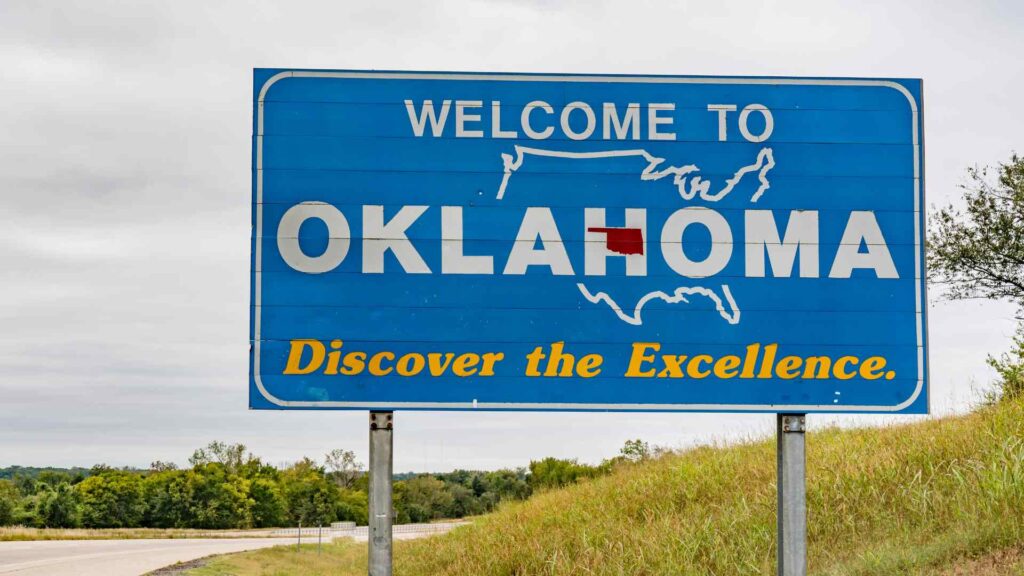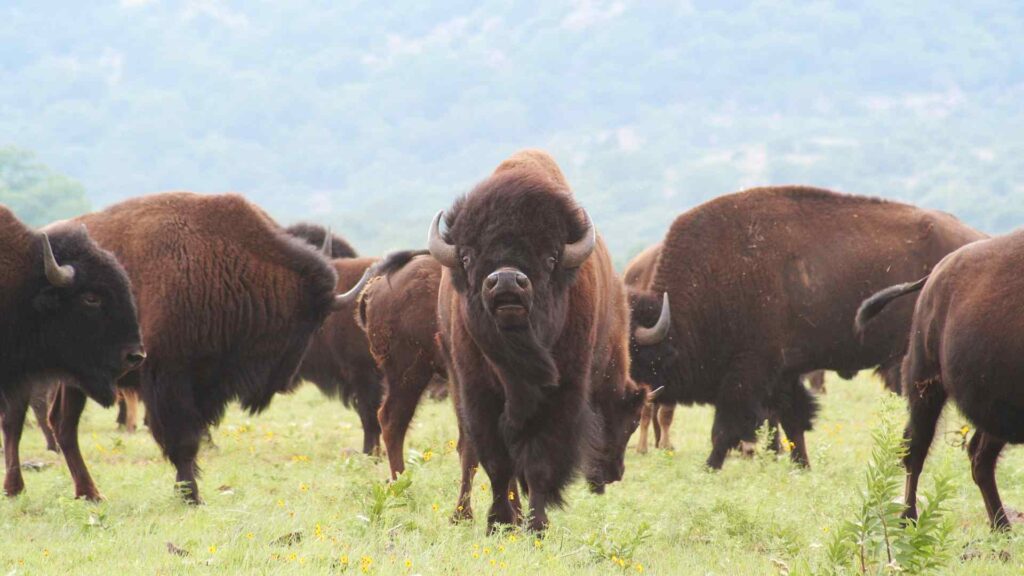Oklahoma, a state rich in culture and history, carries a tapestry of nicknames that tell its story.
From the iconic “Sooner State” to lesser-known gems, these monikers reveal its identity, spirit, and heritage.
Dive into this ultimate guide to uncover the origins and meanings behind Oklahoma’s cherished nicknames.
Sooner State
The nickname “Sooner State” is Oklahoma’s most widely recognized moniker. Its roots are firmly planted in the state’s unique history with land settlement.
Background and Significance
The term “Sooner” originated during the Oklahoma Land Rush of the late 19th century. This event allowed settlers to claim parcels of land in what was then designated as “unassigned lands.”
Officially, participants were to wait until the designated time to stake their claim. However, some eager settlers, referred to as “Sooners,” entered the territory prematurely to snatch the best plots of land.
While initially controversial, the term has since evolved into a badge of pride for Oklahomans. It symbolizes ambition, determination, and the pioneering spirit that defines the state.
Today, the nickname is celebrated in the University of Oklahoma’s sports teams, the “Sooners,” further embedding it in the state’s identity.

The Land of Red Dirt
This nickname pays homage to Oklahoma’s iconic red soil, a natural feature that is both a geological wonder and a symbol of the state’s unique landscape.
Background and Significance
Oklahoma’s red dirt is more than just soil—it’s a cultural touchstone. Its vibrant hue comes from high iron oxide content, giving the land its distinct color.
This red dirt has inspired a subgenre of country music called “Red Dirt Music,” which blends folk, rock, and traditional country sounds.
The land’s striking appearance has drawn poets, artists, and musicians to celebrate it in their work.
Beyond aesthetics, the red soil represents resilience, as it has supported generations of agricultural endeavors despite the state’s often challenging climate.
The Sooner State
Oklahoma earned this name due to its historic ties to the Land Run era, marking a turning point in its development.
Background and Significance
The phrase harks back to the days when settlers raced to claim unoccupied lands. The “sooner” settlers took advantage of loopholes to gain an edge.
While it was initially a point of contention, it grew to symbolize Oklahomans’ enterprising and ambitious nature.
Today, this nickname is celebrated across Oklahoma, reflecting its past and ongoing legacy of perseverance.

The Boomer State
Another nickname with roots in the Land Rush, the “Boomer State” reflects a specific group of settlers who fought for access to Oklahoma’s lands.
Background and Significance
The “Boomers” were activists led by David L. Payne in the late 1800s. They believed the unassigned lands should be opened for settlement and organized demonstrations to push their agenda. Though controversial at the time, their efforts eventually led to significant policy changes.
This nickname honors the determination and vision of the Boomers, who played a pivotal role in shaping Oklahoma’s settlement history.
Native America
One of the most heartfelt nicknames, “Native America,” pays tribute to the state’s deep Indigenous heritage.
Background and Significance
Oklahoma is home to 39 federally recognized Native American tribes, making it one of the most culturally diverse states in the U.S. The state was originally designated as Indian Territory in the 19th century, a fact that still resonates deeply in its identity.
The nickname highlights Oklahoma’s role as a cultural hub for Native American traditions, languages, and art. Visitors can explore this heritage through museums, cultural centers, and annual festivals like the Red Earth Festival, showcasing the vibrancy of Oklahoma’s Indigenous communities.
The Frontier State
A nod to Oklahoma’s Wild West history, “The Frontier State” captures the rugged and adventurous spirit of its past.
Background and Significance
In its early days, Oklahoma was a land of cowboys, cattle drives, and frontier towns. Towns like Guthrie and Dodge City were bustling with settlers carving out a living on the edge of the unknown.
This nickname reflects the boldness and self-reliance of early Oklahomans who braved the challenges of the frontier. Today, the state celebrates this legacy through rodeos, museums, and historic sites that preserve the stories of its cowboy culture.

The Land of the Brave
A poetic moniker, “The Land of the Brave,” honors Oklahoma’s resilience and the courage of its people.
Background and Significance
From surviving natural disasters like tornadoes to rebuilding communities, Oklahomans have consistently shown strength in the face of adversity. This nickname recognizes the spirit of unity and bravery that defines the state’s citizens.
The phrase also connects to the state’s Native American heritage, honoring the courage of tribes that endured displacement and fought to preserve their culture.
Tornado Alley’s Heart
Oklahoma lies at the center of Tornado Alley, a region known for its frequent and powerful storms.
Background and Significance
This nickname is both a geographical descriptor and a testament to the state’s resilience. Tornadoes are a part of life in Oklahoma, shaping its architecture, emergency preparedness, and community spirit.
Despite the challenges posed by these storms, Oklahomans have learned to adapt and thrive, making this nickname a symbol of survival and strength.
Oil Capital of the World
Reflecting its historic prominence in the oil industry, Oklahoma once bore the title “Oil Capital of the World.”
Background and Significance
During the early 20th century, cities like Tulsa were booming hubs of oil production. The state’s economy was transformed, and its influence in the energy sector grew significantly.
While no longer the global leader, the oil industry remains a cornerstone of Oklahoma’s economy. The nickname reflects the state’s lasting impact on the energy sector and its role in powering America.
Wheat Capital
Known for its agricultural prowess, Oklahoma is often called the “Wheat Capital.”
Background and Significance
Oklahoma’s vast plains and fertile soil make it an ideal location for wheat farming. The state is one of the top producers in the nation, contributing significantly to the U.S. food supply.
The nickname underscores Oklahoma’s importance in feeding the nation and highlights the hard work of its farming communities.
Crossroads of America
Situated at a central location, Oklahoma serves as a major transportation hub, earning it the nickname “Crossroads of America.”
Background and Significance
Oklahoma’s highways and railroads connect it to every corner of the U.S. The famous Route 66 runs through the state, further cementing its status as a vital link in the nation’s infrastructure.
The nickname celebrates Oklahoma’s role in connecting people and goods across the country.
Home of the Trail of Tears
This somber nickname reflects Oklahoma’s role in one of the darkest chapters in American history.
Background and Significance
During the 1830s, thousands of Native Americans were forcibly relocated to what is now Oklahoma. The Trail of Tears, as it came to be known, marked a period of immense suffering and loss.
This nickname is a reminder of the state’s responsibility to preserve and honor the memories of those affected, ensuring their stories are never forgotten.
Black Gold State
Another oil-related nickname, the “Black Gold State,” highlights Oklahoma’s vast natural resources.
Background and Significance
Oil, often referred to as “black gold,” played a pivotal role in Oklahoma’s economic development. The nickname reflects the wealth and opportunities created by this industry, as well as the challenges it brought to the state’s environment and communities.
The Great Plains State
With its sprawling prairies, Oklahoma is often called “The Great Plains State.”
Background and Significance
The nickname captures the essence of Oklahoma’s geography and its role as a vital agricultural region. The Great Plains are not just a physical feature but also a cultural and economic cornerstone of the state.
Conclusion
Oklahoma’s nicknames tell stories of resilience, history, and culture. From its red dirt roots to its Native American heritage, each moniker offers a glimpse into the state’s vibrant identity.
Whether you’re an Oklahoman or a visitor, these nicknames remind us of the rich tapestry that defines the Sooner State.
